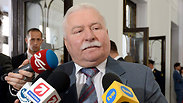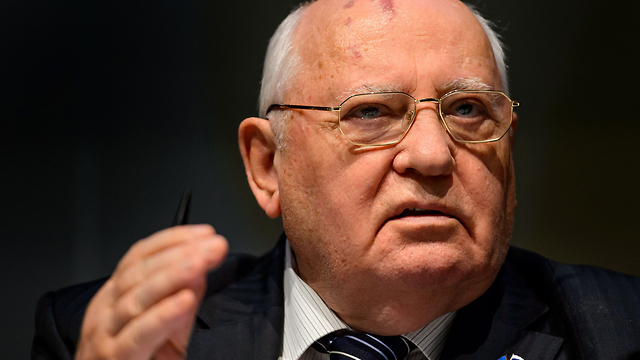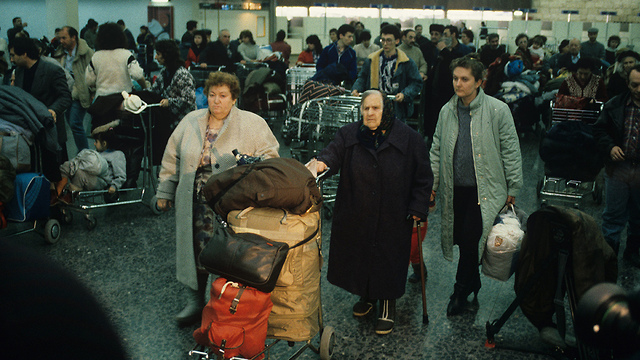Thirty years ago, on June 4, 1988, communism died. In the first free and democratic elections in Poland since the end of World War Two, the Solidarity party, a populist and persecuted opposition party, won 99% of the votes, while the ruling communist party received only one seat in the parliament.
In August of that year, a democratic government headed by Solidarity activist and devout Catholic Tadeusz Mazowiecki was sworn in. That was only the beginning; in October of 1989, a democratic government was installed in Hungary, on December 9th, the Berlin wall fell and East Germany ceased to exist.
Shortly afterwards, the Velvet Revolution broke out in Czechoslovakia and in Romania, the dictator Ceausescu was executed. Even closed-off Albania was liberated from communist control.
Leonid Brezhnev, the general secretary of the Communist Party in the Soviet Union, passed away in 1982. He was replaced by the KGB head Yuri Andropov who died half a year later. Then came Konstantin Chernenko, another dull and forgotten communist, who occupied the position for a year and a half before he too died.
Desperate to put an end to the series of state funerals, the Communist Party officials sought someone younger and in 1985 they chose Mikhail Gorbachev, then 53, for the post of general secretary of the party. Within six years, the soviet bloc disintegrated, the Soviet Union collapsed and Germany was united into one western nation.
But the anti-communist revolution did not begin in Russia, it began in Poland. In December 1987, I was invited to participate in an international conference in Warsaw regarding extricating the country from yet another of its frequent financial crises.
I witnessed a poor, hungry, oppressed country, plagued by social unrest and led by a government strongly despised by the Polish people. The Communist Party looked to me to be on its deathbed.
Shortly afterwards, a wave of strikes ensued in the nation's port cities and industrial centers, led by Lech Wałęsa. The Communist Party leaders asked Gorbachev for assistance, but he replied that it was their problem to deal with. Poland, he said, was free to choose whatever form of government it saw fit; we will not interfere.
In 1989, a series of "round table" talks were held between the government and the Solidarity leadership and it was decided to hold free and democratic elections to the Polish parliament in the first week of June. Ahead of the elections, campaigning and distributing opposition newspapers was permitted. By the end of that year, communism was obliterated from the country.
On December 25th 1991, my wife and I witnessed the lowering of the red flag from Moscow's Kremlin and its replacement by the white, blue and red flag of the Russian Republic, headed by president Boris Yeltsin, who outlawed the Communist Party. Like dominoes, almost all of the Soviet republics, from Lithuania in Europe to Uzbekistan in central Asia, abandoned the bloc and declared independence.
To the dismay of former secretary of state, Henry Kissinger, the high priest of the status quo, continuity and quiet diplomacy, the Yalta agreement of 1945 — in which Stalin, Roosevelt, and Churchill divided the world into two spheres of influence — were annulled. Communism surrendered to capitalism without the firing of a single shot.
In the aftermath, and in contrast to the predictions of skeptical intellectuals, the quality of life for the citizens of the newly democratic states increased substantially over the subsequent three decades. Today, there remain only two communist countries: Cuba and North Korea.
Israel gained a great deal from the collapse of the Soviet empire. Post-communist governments initiated full diplomatic relations with the Jewish state, followed by economic and strategic ties. The arms race to keep up with Soviet armaments also ended.
In a casual conversation in 1988, Gorbachev told American Jewish oil tycoon Armand Hammer that he "allows for all Jews who want to emigrate to Israel," and the report was published as a global scoop in Yedioth Ahronoth. The more than one million immigrants who have arrived in Israel since have enabled, among other things, the flourishing of Israeli high-tech, which brought the country at least $450 billion in revenue. Were it not for the sweeping victory of the anti-communist revolution of 1989, Israel would not be what it is today. It is worth remembering this.




















